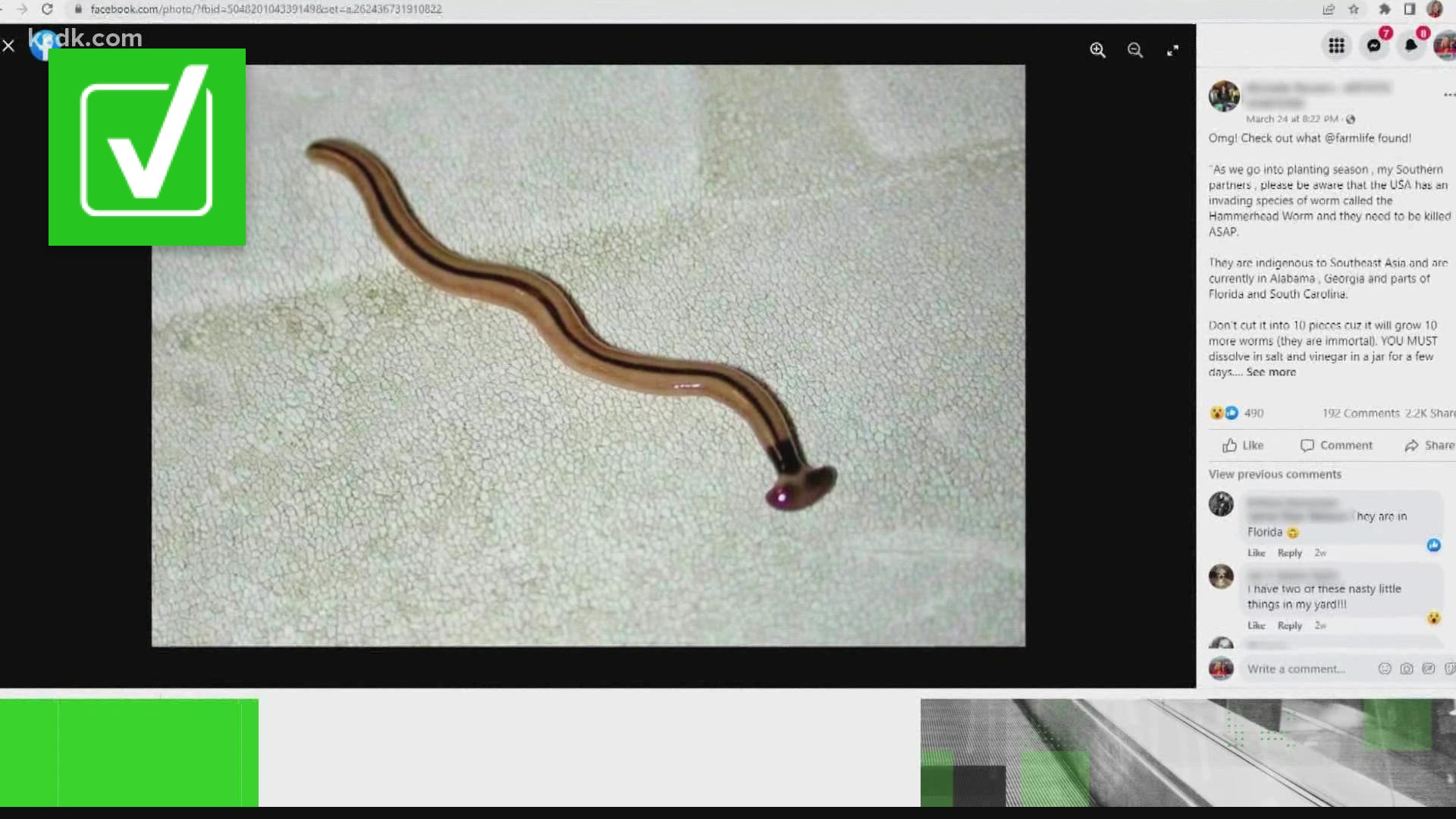ST. LOUIS — As you start prepping and planting in your yard this Spring, keep you eye out for the hammerhead worm.
A Facebook post, shared more than 2,200 times, makes the following claims about the species:
- you “need to kill it ASAP”
- if you cut it up, “it will grow 10 more worms”
- to kill it, “dissolve in salt and vinegar” or “freeze” it
- has an “incredibly potent” toxin, also found in pufferfish, and worm cannot make contact with your skin
Our sources to find out what’s fact and what’s fiction are William Crow, professor of nematology at the University of Florida, Kelly McGowan, field specialist in horticulture at University of Missouri Extension, and local entomologist, James Trager.
Professor Crow said this worm is native to Malaysia. McGowan told the Verify team it has been spotted in Missouri. The first report was in Springfield in 2018 and several more sighting have been reported around the state. However, the worm has not been reported in the St. Louis area.
Our experts say the worm arrived in the U.S. hitching a ride in soil and plant material imported here.
The worm is more common in southern states. Plants and soil shipped from those southern states often introduces the worm to new regions of the U.S..
Our experts say the hammerhead worm hunts and eats earthworms making them disruptive to the ecosystem. They can grow up to 6 inches long.
As for the claims made in the viral Facebook post:
Our experts say you should kill hammerhead worms if you encounter them.
If you cut them up, they will morph into more worms. Professor Crow said, “It’s not a worm that needs to have sexual reproduction. It reproduces by budding so it just kind of pinches off little pieces of itself and then grows into more worms.”
You can successfully kill them by dissolving them in salt/vinegar or freezing them. However, our experts say squishing them is the most humane way to kill the worm.
The hammerhead worm does have a tetrodotoxin it excretes to paralyze its prey. Professor Crow says it’s a mild toxin and if your skin comes in contact with the worm, just wash the area.
We can verify that three out of the four claims about hammerhead worms are true.

